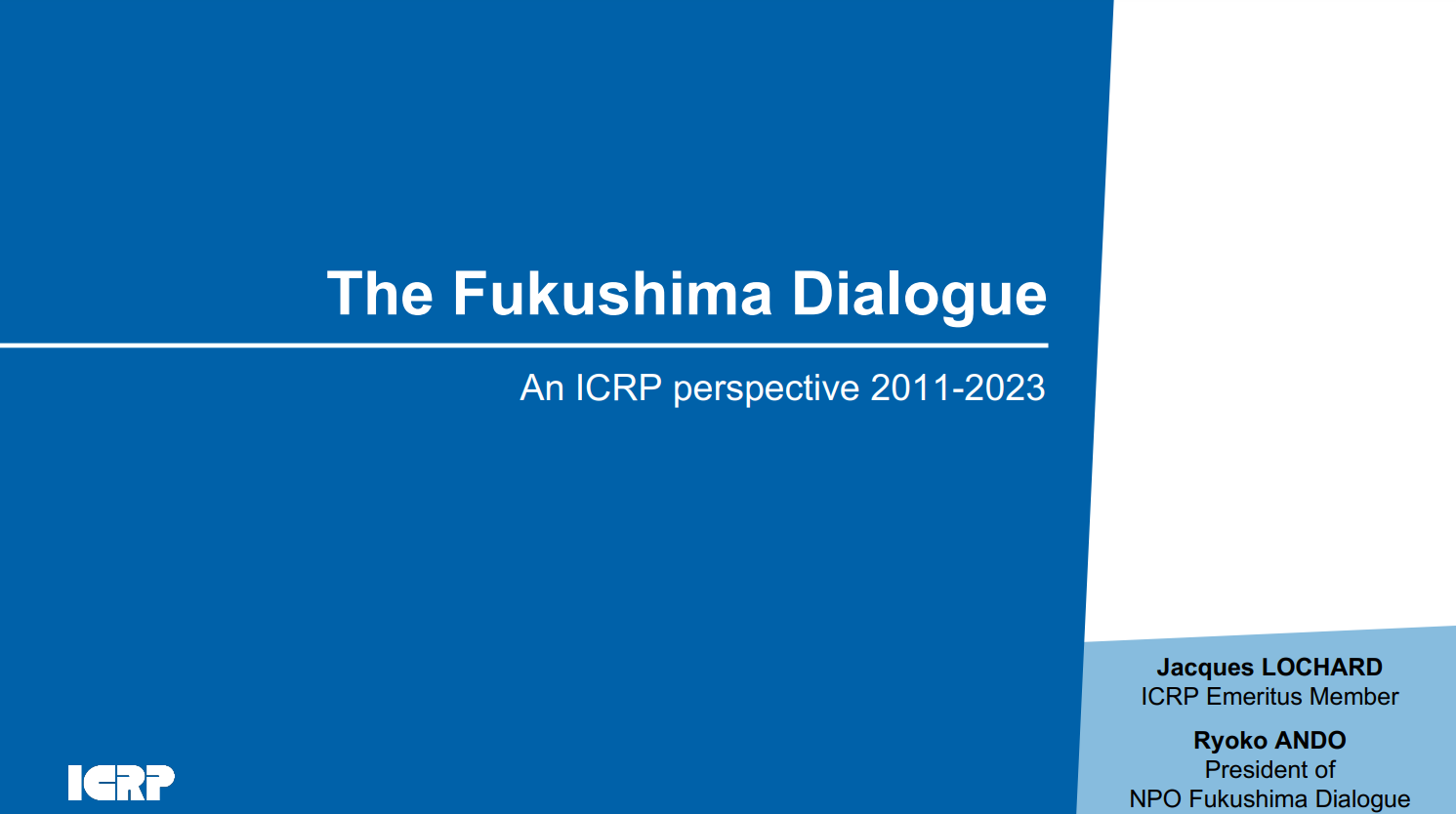 Creating a Future of Fukushima Together
Creating a Future of Fukushima Together
Message
Objective and values of the NPO
The general objective of the NPO is to improve the living conditions of those affected by the Fukushima accident by promoting dialogue and cooperation among all people of goodwill: residents of the prefecture, Japanese citizens, local leaders, experts and authorities, as well as national and international supporters.
Recovery from disasters is often fraught with difficulties. The difficulty is compounded by the fact that there is no shared understanding of what kind of recovery is being sought and what kind of future people want to create. We believe that the most important thing for a sustainable recovery is for everyone involved to feel that it is their own recovery and that they are creating their own future. The nuclear disaster also requires a unique, long-term response to radiation.
In summary, We aim to be a platform for dialogue for the recovery of Fukushima so that no one is left behind and everyone is involved in creating the future of Fukushima. To achieve this goal the NPO has adopted the following values:
Committed to individual well-being and quality of community life in the areas affected by the nuclear accident at Fukushima, relying on prudence, justice and dignity to protect people against radiation and promote the future of the Fukushima region.
Respect for the views of others by showing courtesy and consideration and in so doing, creating the foundation for positive relationships built on mutual appreciation and understanding, even when disagreeing with another’s opinions.
Autonomy in the achievement of its mission, independent of government and industry.
Accountable and transparent in its governance and its activities.
Inclusive by promoting dialogue and future-proof cooperation between all people of goodwill, including residents of the Prefecture, Japanese citizens, local leaders, experts, and authorities, as well as national and international supporters
Achievements to date
The Fukushima Dialogue has been held on an ongoing basis since the Fukushima nuclear accident in 2011, taking up themes that have become issues in the recovery of Fukushima at that time. Immediately after the accident, we discussed food safety and childcare; when the evacuation orders were lifted, we discussed the challenges of living in the evacuation zone; more recently, we discussed the discharge of treated water into the sea and what the younger generation thinks about the recovery process.
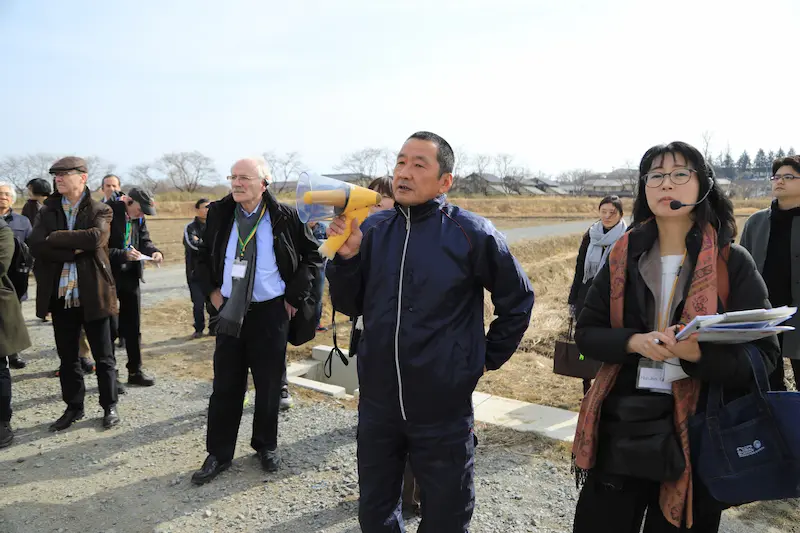
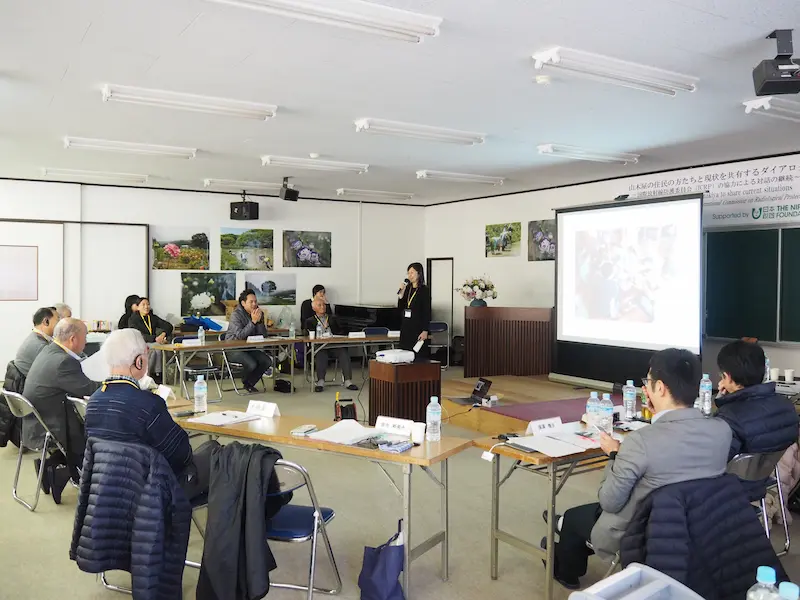
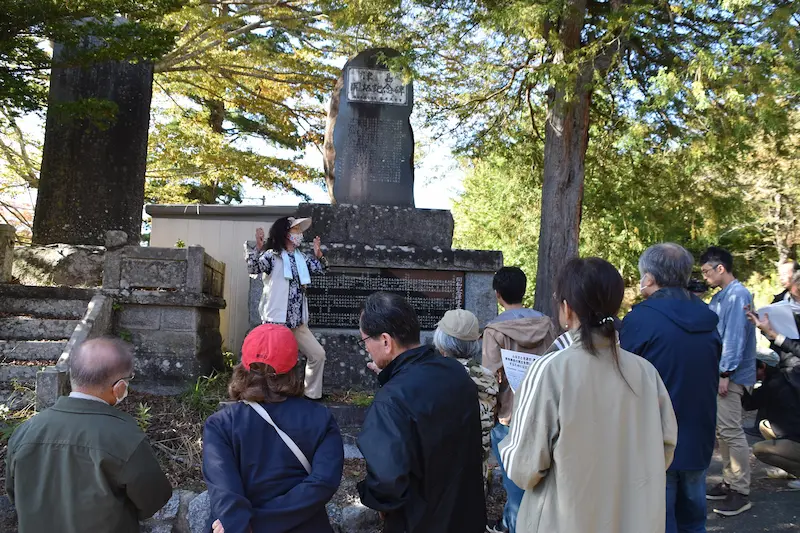
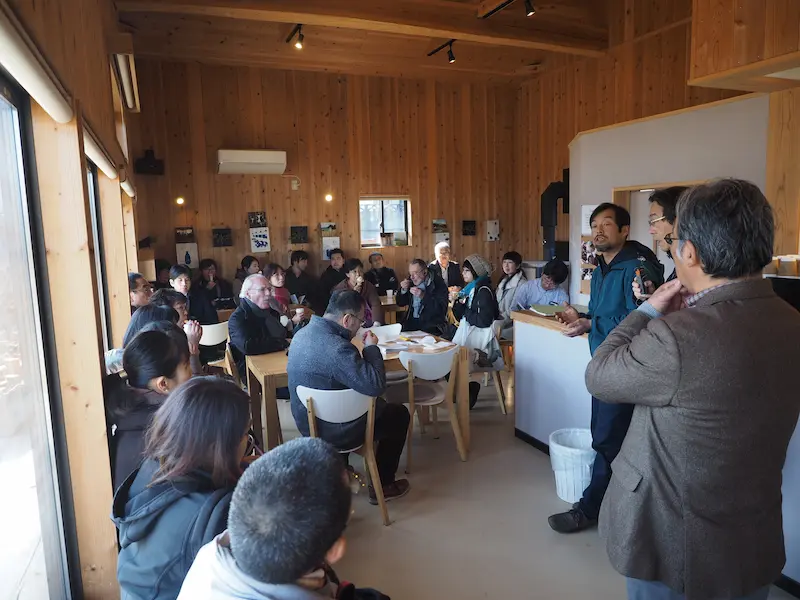
By creating a fair and transparent forum where not only local residents, but also experts from home and abroad, government officials, and people from various groups and organizations could come together and share their situations, the Fukushima Dialogue served as a lubricant to help participants gain new relationships and ideas and as a springboard to take the next step. The results were widely disseminated outside the country through international participants and were highly appreciated.
Origin of the NPO
In November 2011 the International Commission on Radiological Protection (ICRP) organized a meeting in the premises of the Fukushima Prefecture with the title: ʻDialogue on the rehabilitation of living conditions after the Fukushima accidentʼ to make it clear that the issue at stake was the well-being of the inhabitants of Fukushima Prefecture, and not only their fight against radiation.
Given its success, the Dialogue went on during the following years with the support of the Ethos in Fukushima (EIF) group of volunteers. In July 2012 ICRP was invited in the Suetsugi community close to the nuclear power plant at the request of EIF. This was the beginning of a long cooperation between the community and ICRP. 11 other Dialogues were organized by the Commission in different municipalities of the Prefecture between 2011 and 2015.
From 2016 a group of local volunteers took over the organization with the support of ICPR of the following 8 dialogue meetings until 2018, and in July 2019 they created the non-profit organization (NPO) Fukushima Dialogue.
From 2020, the Dialogue meetings are completely in the hands of the NPO which has since organized 4 Dialogue meetings despite the COVID-19 pandemic. In addition, the NPO is continuing with the Suetsugi community the cooperation initiated by EIF and followed by ICRP until 2019.
All Dialogues are presented below.
What is at stake?
As time has passed since the accident at Fukushima, the challenges of recovery have become more complex, while at the same time, there are significant differences in recovery situations between regions and individuals, which are difficult to share. Cooperation between the government and other relevant parties and between residents and the passing on of post-accident experiences are also limited. There are challenges in information sharing in general, which is a prerequisite for decision-making, and this has created a sense of stagnation despite the progress of the recovery process.
In order to improve the current situation, the NPO develops the following specific activities in accordance with the NPO’s objective:
- Advice and consultation on the practical radiological protection culture* and the co-expertise process**
- Dialogue meetings that take place once a year in the fall on a theme of general interest suggested by local stakeholders
- Local initiatives in partnership with NPOs working in the field of recovery
- National and international dissemination of information on the situation in Fukushima through academic articles or the media.
- Participation in national and international projects
- Exchanges with partner organizations abroad
The methodological approach of the NPO
The Fukushima Dialogue is based on proven methodological approaches developed in Belarus in the 90s and 2000s as part of the rehabilitation of living conditions in the territories contaminated by the Chernobyl nuclear accident:
The Co-Expertise Process
The Co-Expertise Process combining transparent science with the local human aspect of post-nuclear disaster recovery through cooperation and dialogue between experts and stakeholders allowing to develop ‘practical radiological protection culture’ i.e. a way of living in the affected area where radiation remains, grounded in reality.
Dialogue methodology
The method developed in France in the 1980s to discuss issues relating to social conflicts between stakeholders. It allows for fair dialogue, ensuring respect for the diversity of participants' points of view and the transparency of their debates.
Please see details here :
https://dx.doi.org/10.14407/jrpr.2023.00136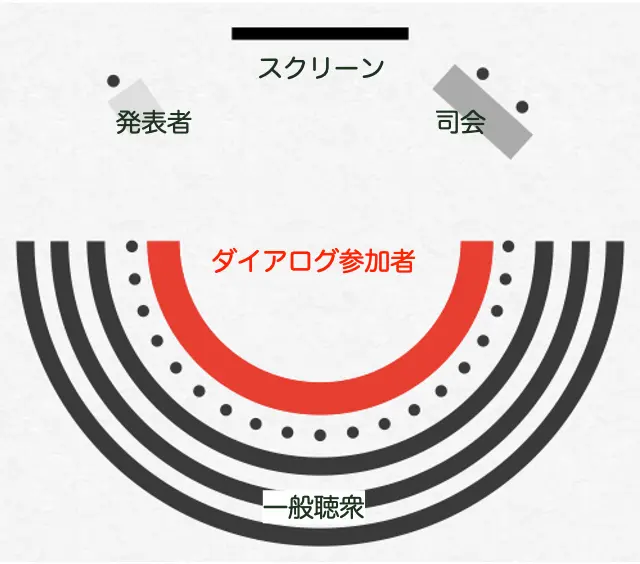
Both approaches help to empower affected local people and the general public to make informed decisions about their protection and their future.
Board of directors (2025-2026)
The Fukushima Dialogue NPO is managed by a Board of Directors of 5 members and 2 auditors. The execution of the activities is entrusted to a Core Group under the responsibility of the Chairman of the Board. The activities are presented to an Advisory Committee which issues recommendations on their orientations
They come from the contributions of its active members and benefactors, from the resources resulting from its activities, credits or subsidies granted by the State, the Prefecture, the Municipalities and public or private organizations, as well as any other resources authorized by law.
Advisory Committee
(2023-2024)
In order to exchange opinions on its activities and to obtain advice, an Advisory Committee has been set up composed of national and international members:
Beyond its advisory role, the Committee establishes and maintains liaison with national and international organizations that share the operating principles of the NPO and are interested in the activities of the NPO. It also contributes to the monitoring of projects developed jointly with other national and international organizations.
- Pippa Feinstein (Canada)
- Jean-Christophe Gariel (IRSN, France)
- Aya Goto (FMU, Japan)
- Yasumasa Igarashi (University of Tsukuba, Japan)
- Yves Lheureux (ANCCLI, France)
- Shunji Matsuoka (Waseda University, Japan)
- Anne Nibet (NHS, UK)
